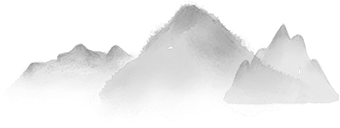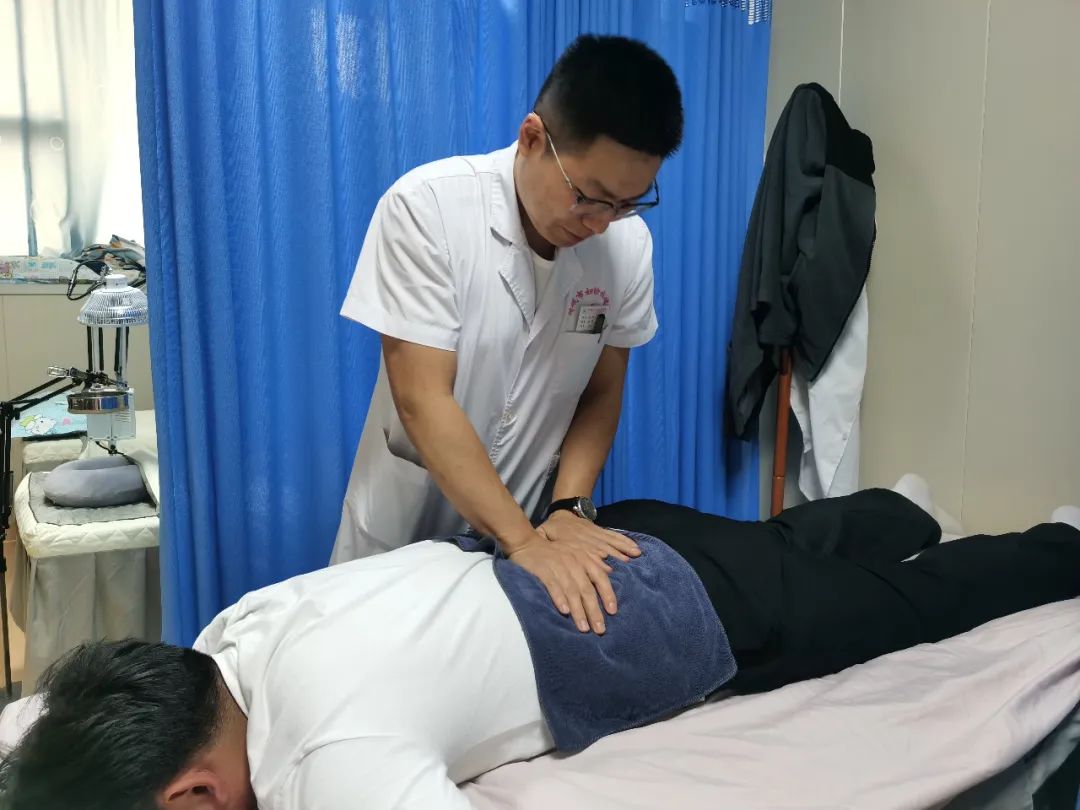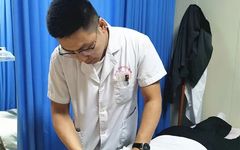
Promoting Traditional Chinese Medicine Culture

Traditional Chinese Medicine (TCM) Tuina is an important component of Chinese traditional medicine. The development of Tuina techniques has a history of thousands of years, and its clinical application is implemented under the guidance of TCM foundational theories.
1. Functions of TCM Tuina
It promotes the flow of Qi and blood by unblocking the meridians. It has significant regulatory and therapeutic effects on spinal and muscular-related strains, as well as common pediatric diseases such as neck, shoulder, waist, and leg pain. Based on its functions, it can be divided into two main categories:
1. Therapeutic: Primarily aimed at treating diseases with a certain therapeutic effect; the techniques are relatively complex and may require more force and higher skill levels.
2. Preventive: Daily health maintenance and prevention, with simpler and gentler techniques, posing lower risks.


TCM Tuina
2. Indications for Tuina
1. Surgical diseases: Strains related to the spine and muscles, such as neck, shoulder, waist, and leg pain.
2. Internal diseases: Headaches, dizziness, insomnia, abdominal pain, constipation, vomiting, etc.
3. Gynecological diseases: Irregular menstruation, dysmenorrhea, insufficient lactation, breast lumps, etc.
4. Pediatric diseases: Myopia, pediatric torticollis, scoliosis, correction of foot inversion/eversion, and common pediatric illnesses such as colds, coughs, rhinitis, food accumulation, anorexia, abdominal pain, diarrhea, etc.

3. Contraindications for Tuina
1. Tuina is contraindicated on areas with skin diseases or skin injuries.
2. Patients with blood disorders or bleeding tendencies should avoid Tuina.
3. Patients with chronic illnesses or severe heart, lung, or brain diseases, as well as those with gastrointestinal perforations, should avoid Tuina.
4. Tuina is contraindicated in cases of extreme fatigue, hunger, or intoxication.
5. Patients with fractures or bone diseases should avoid Tuina.
6. Pregnant women and those during menstruation should avoid Tuina on the abdomen and lower back.
【Doctor’s Profile】

Li Ming, a TCM physician, has been engaged in acupuncture and Tuina for many years. He is skilled in using acupuncture, Tuina, and herbal plaster techniques to treat soft tissue injuries such as neck, shoulder, waist, and leg pain, as well as correcting pediatric torticollis, scoliosis, and treating common pediatric diseases of the respiratory and digestive systems.
【Department Head Profile】

Pang Shugang, head of the TCM Rehabilitation Department, has been engaged in acupuncture and Tuina for fifteen years, integrating techniques from various schools of Tuina. He specializes in using TCM external treatment techniques to treat pain-related diseases such as neck, shoulder, waist, and leg pain, headaches, abdominal pain, dysmenorrhea, ankle sprains, and acute lumbar sprains. He employs the unique Sanzi Jing-style Tuina and organ acupressure techniques to treat various common and difficult pediatric diseases.
【Department Introduction】

Zhucheng City Maternal and Child Health Hospital TCM Rehabilitation Department, based on classical TCM philosophy and medical theory, “following the natural way,” provides health services to a wide range of patients and sub-healthy individuals, particularly targeting TCM spleen and stomach diseases, neck, shoulder, waist, and leg pain, facial paralysis, obesity, herpes zoster, post-stroke sequelae, winter diseases treated in summer, pediatric spleen and stomach diseases, common pediatric illnesses, adolescent acne, acute and chronic respiratory diseases, recurrent colds, insomnia, headaches, dysmenorrhea, irregular menstruation, menopausal syndrome, metabolic syndrome, and various conditions. Treatment plans are tailored according to different seasons, individual constitutions, and living environments.
Currently, the TCM Rehabilitation Department is equipped with: acupuncture treatment rooms, Tuina treatment rooms, moxibustion rooms, floating needle rooms, comprehensive TCM treatment rooms, pediatric external treatment rooms, and a base for preventing myopia in adolescents through Tuina.
Contact number: 0536—6569011

Health Science Popularization
Contributed by: Li Ming
Edited by: Han Xiaoli
Reviewed by: Wen Qin

